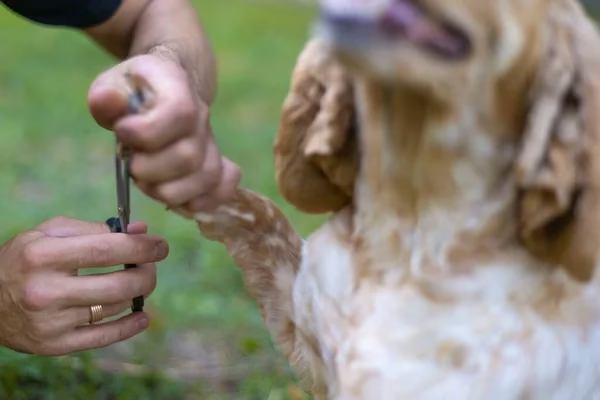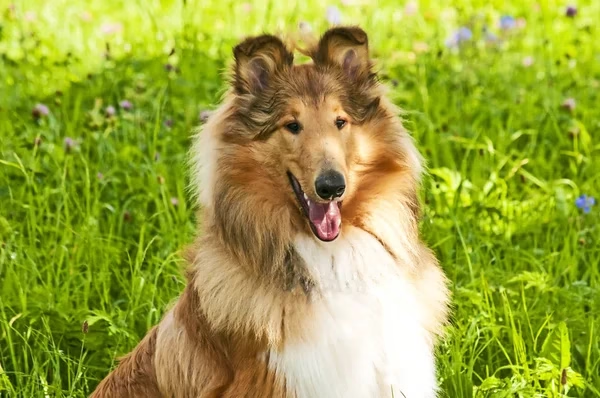Overview

This cocker spaniel care guide offers everything you need to know about caring for this affectionate and active breed. Originally bred as a bird-hunting dog, Cocker Spaniels now shine as playful, loyal family companions. If you’re looking for healthy treats, grooming tips, or simply want to understand their personality better, our resources at Treats for Tail are a great place to start.
Breed Profile
| Attribute | Details |
|---|---|
| Group | Sporting |
| Height | 14–16 inches |
| Weight | 24–28 pounds |
| Coat Type | Medium-length, silky |
| Life Expectancy | 12–15 years |
| Hypoallergenic | ❌ No |
| Shedding Level | Moderate to High |
Although they have show-dog looks, Cocker Spaniels are happiest chasing toys, snuggling on the couch, or trotting alongside their favorite people.
Temperament Traits in Cocker Spaniel Care Guide
Cocker Spaniels are:
- Exceptionally affectionate and loyal
- Playful, yet gentle with kids and other animals
- Emotionally sensitive and responsive to tone
- Occasionally prone to separation anxiety
In addition, they thrive in structured environments with lots of positive interaction. Our senior dog care guide also highlights ways to support sensitive dogs through routine and enrichment.
Nutrition Tips from Cocker Spaniel Care Guide
When it comes to feeding, a consistent diet makes all the difference. A proper cocker spaniel care guide includes:
- Medium-breed kibble rich in lean protein
- Omega-3 and biotin for coat and joints
- Digestive fibers and natural probiotics
- Dental-friendly treats from our shop
Moreover, feed them twice daily and avoid table scraps—Cocker Spaniels gain weight quickly if meals aren’t monitored.
Treat Recommendations
Treat time is more than just tail-wagging fun—it’s part of their care plan. Ideal options:
- Grain-free soft chews
- Hypoallergenic biscuits for sensitive stomachs
- Freeze-dried liver or fish bites
- Homemade treats like apple slices or banana oat balls
For example, if you’re unsure about treat safety, our curated healthy snack selection offers vet-reviewed choices tailored to breeds with skin or allergy concerns.
Grooming Tips for Cocker Spaniel Owners

Maintaining a Cocker Spaniel’s coat and hygiene is essential:
- Brush 3–4 times per week
- Bathe monthly with gentle shampoo
- Clean ears weekly to avoid infections
- Trim paws, eyes, and ears every 4–6 weeks
- Professional grooming every 6–8 weeks
Because of their long ears and lush fur, they’re more prone to skin irritation. We also recommend reading our sensitive skin care article if flare-ups occur.
Cocker Spaniel Exercise Routine & Playful Activities

Daily movement helps keep Cocker Spaniels mentally and physically fit.
They enjoy:
- 45–60 minutes of activity
- Agility courses and sniffing games
- Fetch and tug-of-war
- Puzzle toys for brain stimulation
On the other hand, lack of exercise can lead to boredom and destructive behavior, so make play a priority.
Cocker Spaniel Health Issues & Wellness Tips
Key health concerns for the breed:
- Ear infections
- Progressive retinal atrophy (PRA)
- Hip dysplasia
- Skin allergies
- Dental disease
Therefore, regular vet visits, brushing, and high-quality food are crucial. For up-to-date info, see PetMD’s Spaniel health guide.
Best Environments for Cocker Spaniel Care
Spaniels are adaptable but need companionship. Best suited for:
- Homes with moderate to high activity
- Families or individuals home often
- Access to outdoor space
However, chaotic homes or inconsistent routines may cause behavioral stress.
Toys & Accessories
To keep them entertained and stimulated:
- Plush squeaky toys
- Puzzle feeders
- Soft chew bones
- Cooling mats for summer months
- Dog-safe coats for chilly weather
We’ll soon be publishing a full toy guide for active breeds—follow Treats for Tail’s blog for updates!





